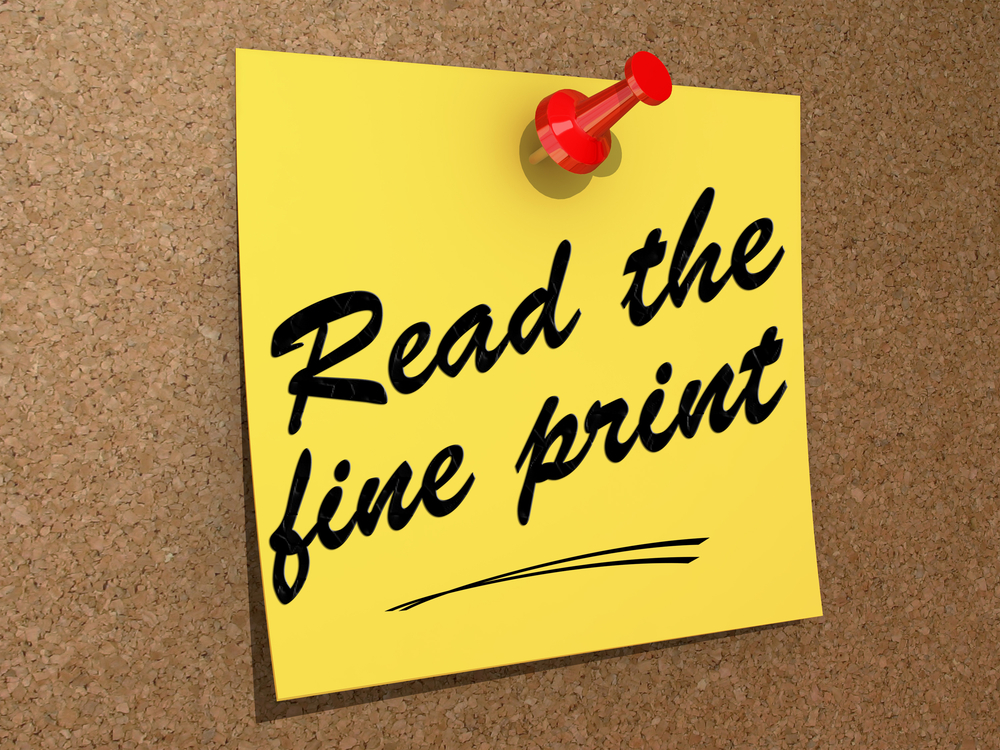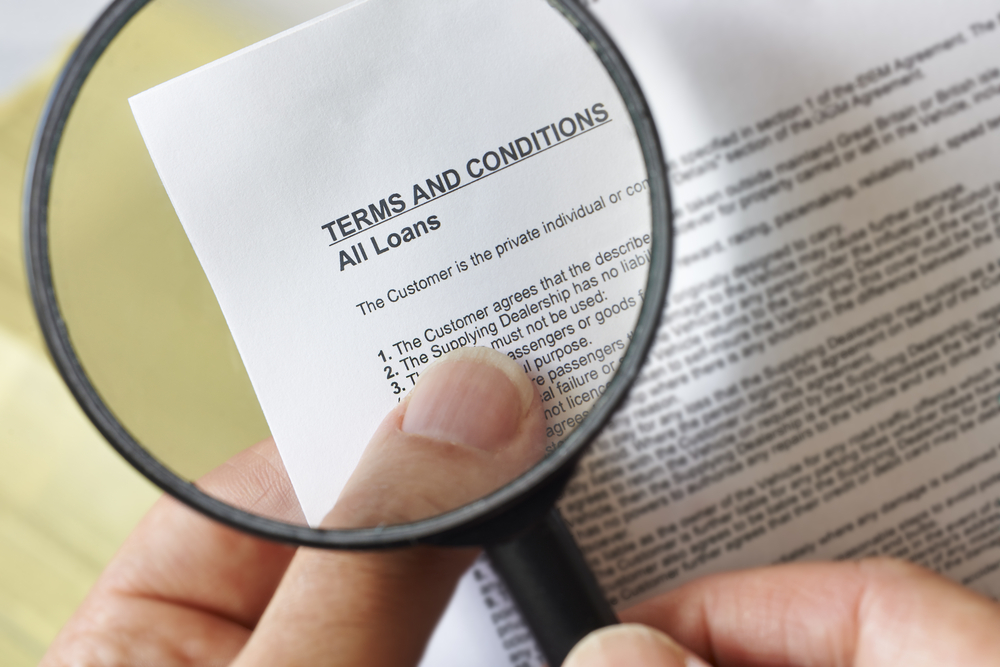Let’s face it, loans of any type can be a blessing in disguise for those people who need cash. That’s because getting approved for it can allow you to repay in installments over a period of time. However, taking out a loan isn’t always a good idea, especially if you don’t go through the fine print.
If you’re planning to borrow a loan anytime soon, here’s everything you need to know about a fine print and why it’s essential to check it before applying for a loan.
What is a Fine Print?

Before tackling the importance of reading the fine print, let’s first define what a loan fine print is. Primarily, a fine print refers to a part of a contract that provides the terms and conditions of the loan agreement.
It also contains all vital information that isn’t placed in the main body of the deal but usually found in a supplemental document.
Given the definition above, reading and understanding the contents of the fine print is crucial when signing up for a loan agreement.
It has information that the lender may not want the recipient to discover first-hand but is still essential for them to know.
Importance Of Reading A Loan’s Fine Print
Now that you know what and how a fine print works, the next step is to familiarize yourself with the importance of reading the fine print.
Let’s take a look at some reasons why it’s essential to review the fine print before you apply for a loan:
Gives You A Better Understanding
Sometimes, there are provisions in the fine print that you may not fully understand. That said, it’s best to read the fine print before proceeding with the application.
By reviewing the provisions of the agreement, you can make yourself a smarter and more informed consumer.
If you fail to read the fine print, you may probably face serious financial consequences. Therefore, avoid assuming you know everything about the loan to ensure you make the right decision to apply.
Helps Avoid Adverse Financial Consequences

Applying for a loan without reviewing the fine print can lead to serious financial consequences. If you fail to read the provisions of the loan agreement, you may not know whether the loan you consider comes with hefty interest rates, fees, and other charges.
To make sure you don’t want to find yourself paying expensive interest rates and other related fees, check the fine print before signing the loan contract.
Also, diving into the perfect guide to money management can help you cover your upcoming bills and avoid payment of substantial fees when taking out a loan.
Allows You To Protect Your Legal Rights
Ideally, you sign a loan contract for a variety of reasons. However, taking out a loan requires you and your lender to abide by the contract’s legal guidelines.
Each step of the application process must be ethical and transparent. Your lender, for instance, should make terms and conditions in accordance with the borrower’s legal rights.
Below are the fundamental rights you should protect when applying for a loan right to:
- Non-abusive products
- Transparent pricing and terms
- Fair collection practices
- Fair treatment from brokers
To know if one or two of the above fundamental rights may be violated by your lender, read the fine print of the loan contract before filling up the application form.
Enables You Understand Complex Terms
In addition to protecting your legal rights, reading a loan’s fine print is essential since it allows you to understand complicated terms contained in the loan agreement. Sometimes, a loan’s fine print may have a lot of technical jargon that you’re not familiar with.
If you’re looking to avoid any misunderstanding or assumptions about anything in the contract, find time to read and check every provision of the fine print before applying. That way, you can protect yourself from getting burned soon.
Saves You Time
While reviewing every page of the fine print may be time-consuming, it can actually save you time. Your understanding of the loan you’re planning to take out can help you avoid any surprises down the road.
By reading the fine print before applying, you’ll be able to get the perfect loan for your financial needs. As a result, not only will you save your valuable time, but also your money in the long run.
Conclusion
Indeed, failing to check the fine print of a loan contract may have life-changing consequences on your financial situation. So, if you’re borrowing money now, be sure to get down to the details first before signing the application form.
Above all, we hope you find this article useful when knowing the importance of reading and understanding the fine print of your loan contract.















